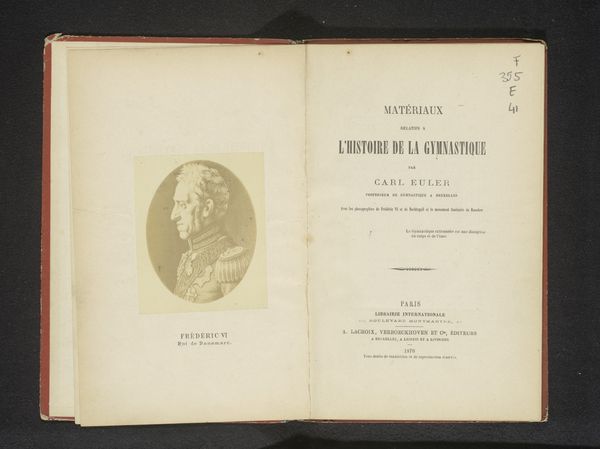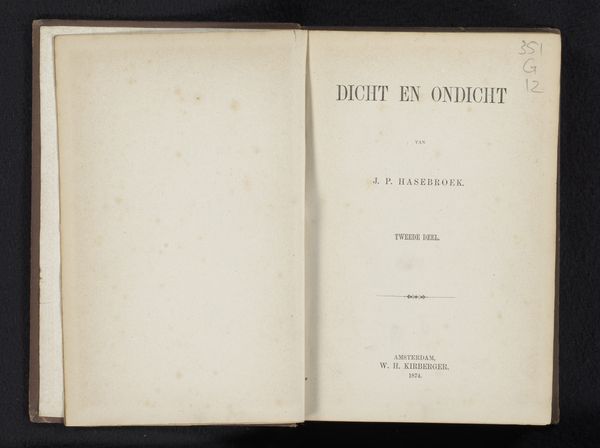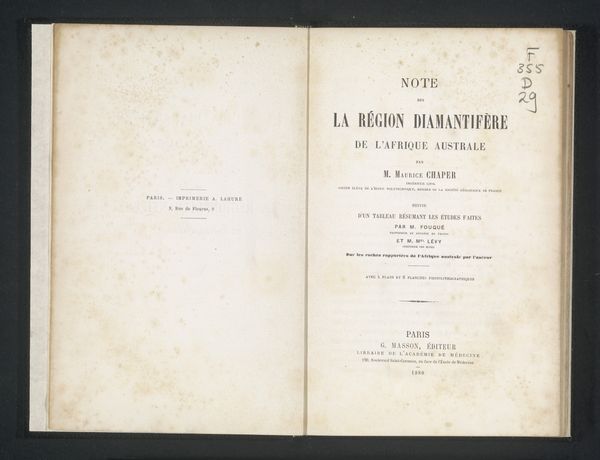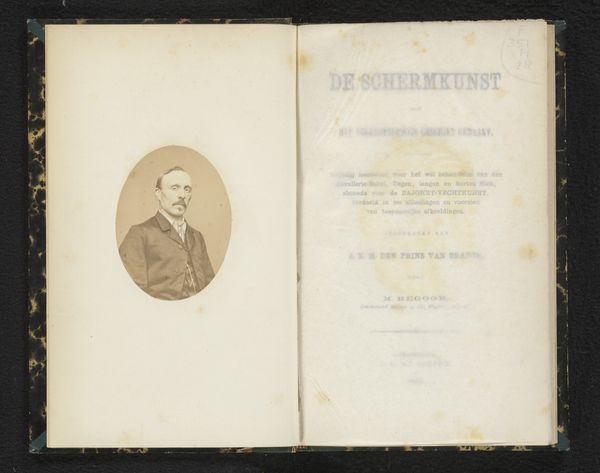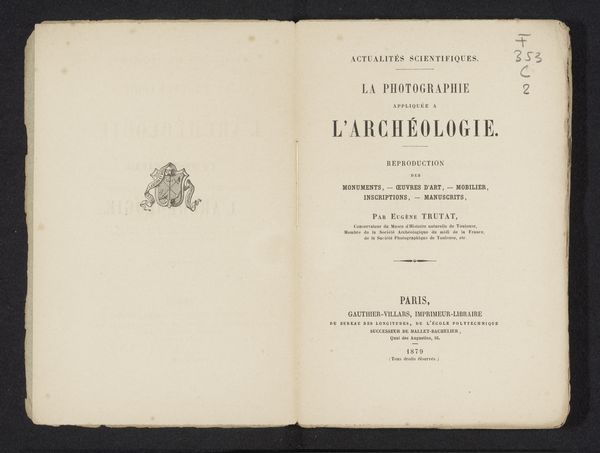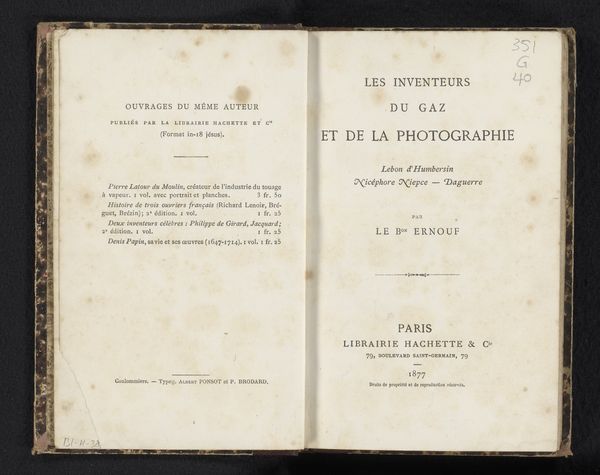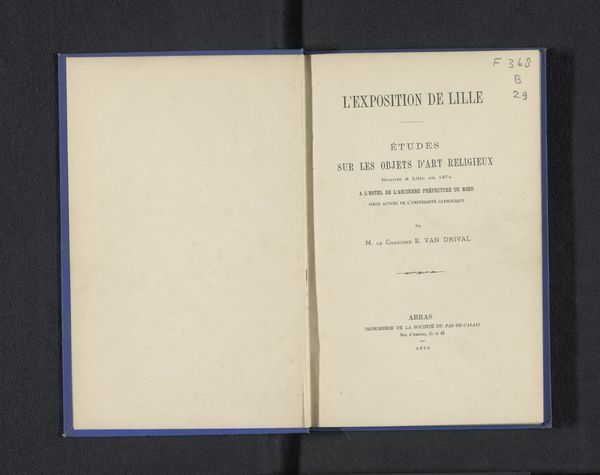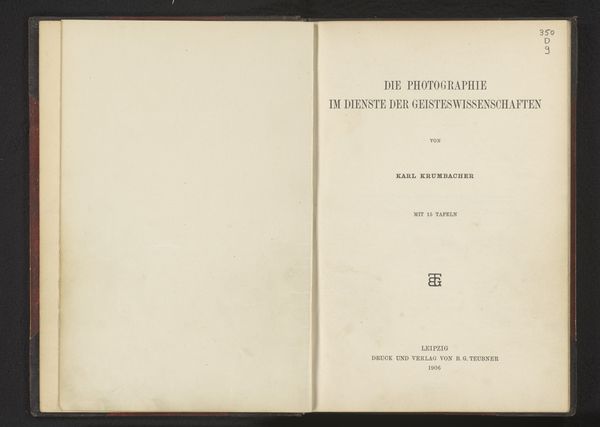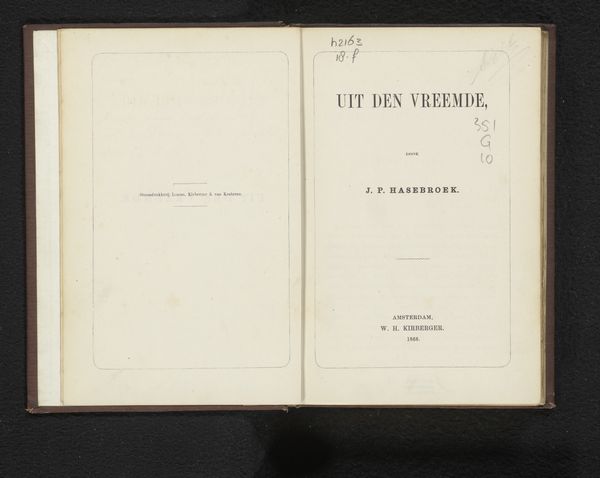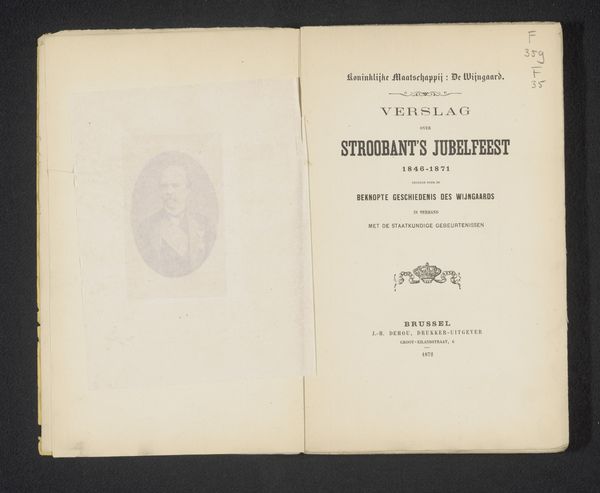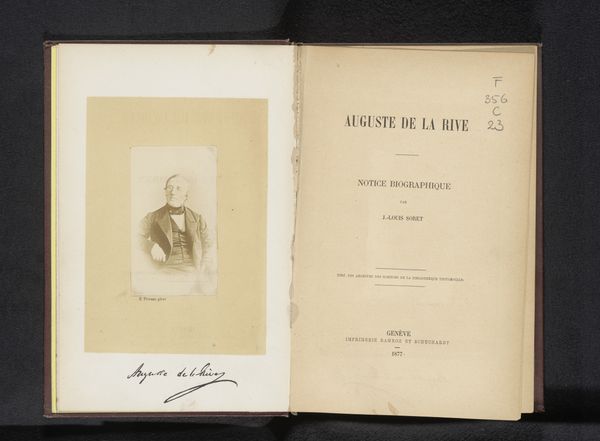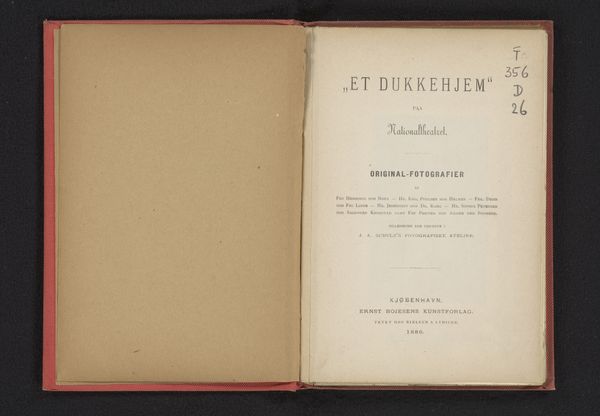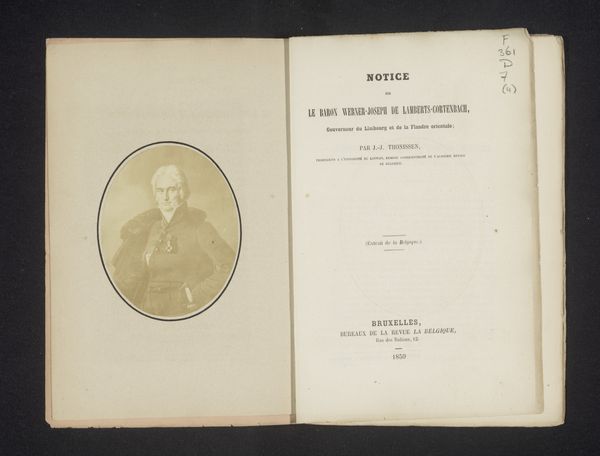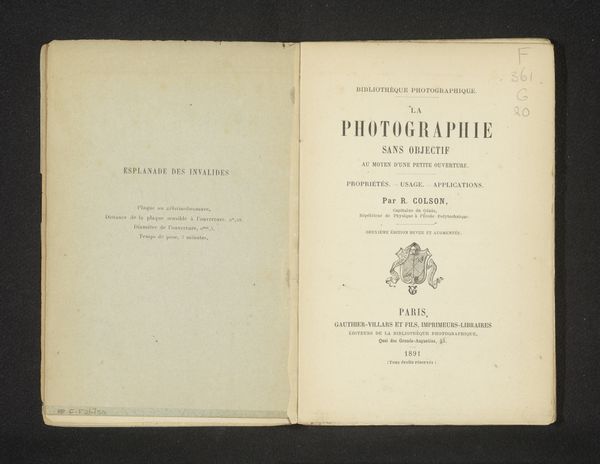
De schermkunst voor het volksonderwijs geschikt gemaakt : volledig leerstelsel voor het wèl behandelen van den kavallerie-sabel, degen, langen en korten stok, alsmede voor de bajonet-vechtkunst, verdeeld in zes afdeelingen en voorzien van toepasselijke abeeldingen 1866
0:00
0:00
graphic-art, print, typography
#
graphic-art
#
aged paper
#
homemade paper
#
16_19th-century
#
paper non-digital material
#
paperlike
# print
#
book
#
paper texture
#
personal sketchbook
#
typography
#
folded paper
#
letter paper
#
paper medium
#
historical font
Dimensions: height 228 mm, width 145 mm, thickness 22 mm
Copyright: Rijks Museum: Open Domain
Curator: Here, we have an interesting piece from 1866: a manual by Mijndert Martinus Regoor entitled "De schermkunst voor het volksonderwijs geschikt gemaakt," or "Fencing Made Suitable for Public Education." It’s essentially a comprehensive guide to swordsmanship and bayonet fighting. Editor: It gives me a strangely nostalgic feeling. It's the crisp black lettering against that creamy, aged paper...it smells like history, you know? There’s also an austere quality to it, which perhaps reflects the period. Curator: The typography is indeed striking. The use of varying font sizes and weights creates a clear hierarchy, emphasizing the book's purpose as an instructional tool. You get a strong sense of the societal forces shaping the individual, preparing them for service. I find it amazing how something like fencing—traditionally aristocratic—is being democratized through mass printing and offered as a tool for the "volksonderwijs"—public education. Editor: Precisely. I mean, consider the physical materials: the paper itself, likely manufactured on a larger scale now to meet the demands of a growing literacy rate. And this wasn’t just about high art or literature; this was practical knowledge, presented as a set of skills to be consumed, practiced and employed within a shifting social framework. It's such a different world than one where fencing would've only been reserved for elite individuals. Curator: The inclusion of "toeepasselijke afbeeldingen"—relevant images—which are regrettably not visible here, would have been crucial in clarifying techniques and engaging a wider audience. So the value is not only in its writing but in its distribution of printed material which informs society and teaches the layman useful military information. Editor: And that mass production itself speaks volumes. A whole social machinery is present that enabled the printing, selling and ultimately consuming a book like that. It's also great to consider the type of labor that contributed to this project, as this sort of item required collaboration from all types of artisans. Curator: Yes, examining these details brings it alive, doesn't it? It’s a window into a past grappling with progress, democratization, and, of course, military preparedness. Editor: Exactly! Suddenly, it’s not just ink on paper but a network of hands and minds all participating in the manufacturing and consumption of new types of educational content.
Comments
No comments
Be the first to comment and join the conversation on the ultimate creative platform.
